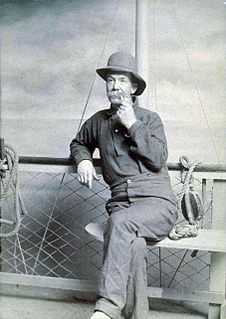A Quote by Ralph Waldo Trine
Every thought you entertain is a force that goes out, and every thought comes back laden with its kind.
Related Quotes
Every temptation that is resisted, every evil thought that is curbed, every desire that is subdued, every bitter word that is withheld, every noble aspiration that is encouraged, every sublime thought that is cultivated, adds to the development of will-force, good character, and attainment of eternal bliss and immortality.
Every time we have a thought that's not a thought of kindness towards others - then we've left the field of intention and, therefore, lost the power of the field of intention, as well. The whole idea is to connect yourself back to this field from which all things emanate, to return to your source and watch it in every thought that you have.
By consequence, or train of thoughts, I understand that succession of one thought to another which is called, to distinguish it from discourse in words, mental discourse. When a man thinketh on anything whatsoever, his next thought after is not altogether so casual as it seems to be. Not every thought to every thought succeeds indifferently.
Sin aims always at the utmost; every time it rises up to tempt or entice, if it has its own way it will go out to the utmost sin in that kind. Every unclean thought or glance would be adultery if it could, every thought of unbelief would be atheism if allowed to develop. Every rise of lust, if it has its way reaches the height of villainy; it is like the grave that is never satisfied. The deceitfulness of sin is seen in that it is modest in its first proposals but when it prevails it hardens men’s hearts, and brings them to ruin.
I love you, he thought, looking at Win. I love every part of you, every thought and word...the entire complex, fascinating bundle of all the things you are. I want you with ten different kinds of need at once. I love all the seasons of you, the way you are now, the thought of how much more beautiful you'll be in the decades to come. I love you for being the answer to every question my heart could ask.
No thought can encapsulate the vastness of the totality. Reality is a unified whole, but thought cuts it up into fragments. Every thought implies a perspective, and every perspective, by its very nature, implies limitation, which ultimately means that it is not true, at least not absolutely. Only the whole is true, but the whole cannot be spoken or thought.



































